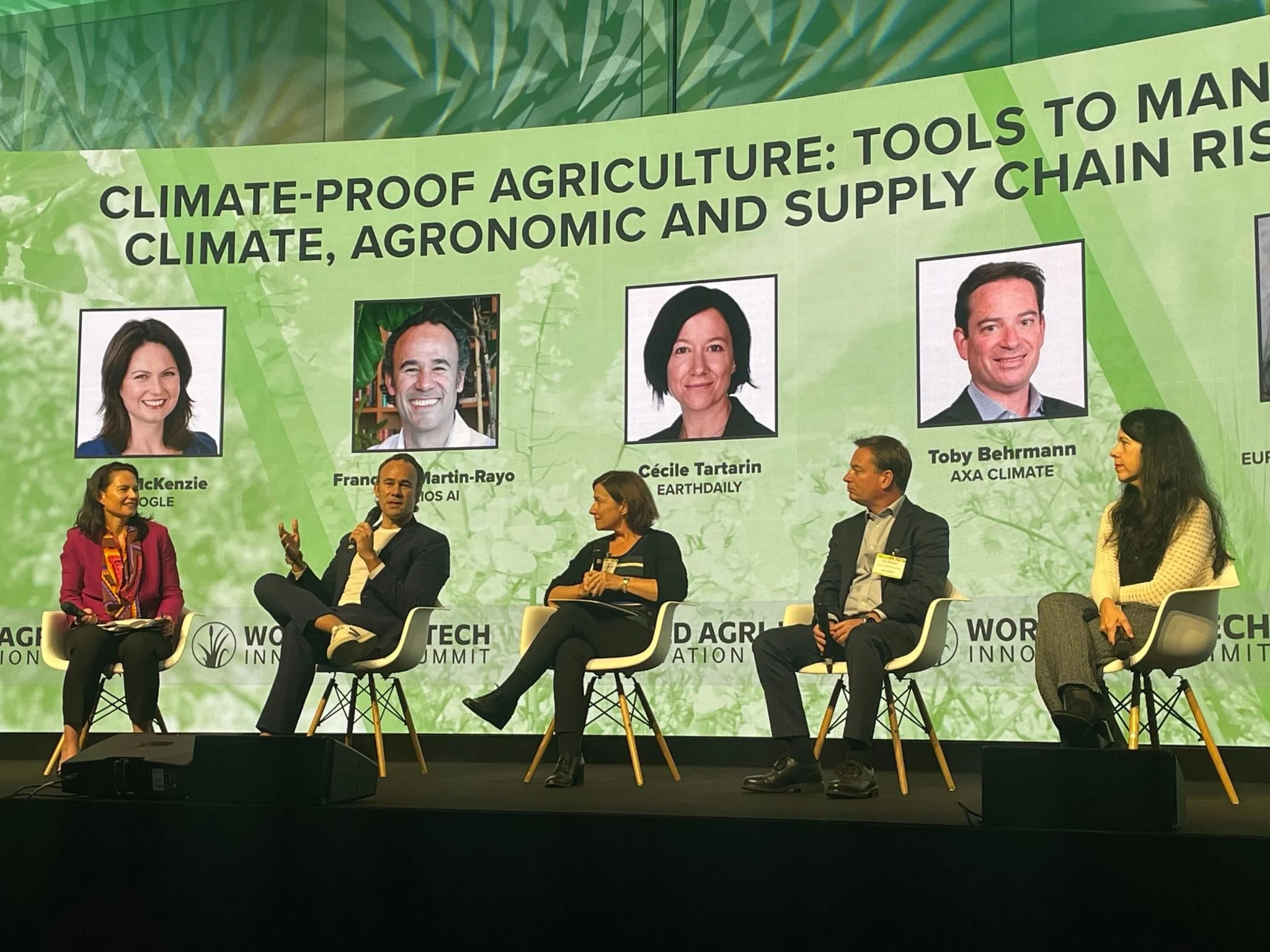Helios AI at World Agri-Tech 2025: Predicting Prices, Climate Risks, and Supply Chain Disruptions
This September, Helios AI took the stage at World Agri-Tech 2025 in London, one of the most influential events shaping the future of food, agriculture, and supply chain resilience. Our CEO & Co-Founder, Francisco Martin-Rayo, joined leaders from Google, EarthDaily, AXA Climate, and the European Space Agency (ESA) for a main-stage discussion on Climate-Proof Agriculture and the role of artificial intelligence in transforming global food systems.
The conversations throughout the week made it clear: food supply chains are at a turning point. Between climate volatility, geopolitical disruptions, and rising supply chain fragility, the agri-food industry must adopt new tools and collaborative strategies to stay ahead.
Three Key Takeaways from World Agri-Tech 2025
1. Collaboration Across the Value Chain
True food supply chain resilience requires breaking silos. From growers and procurement leaders to banks, insurers, and CPGs, every stakeholder has a role to play. Financing mechanisms can help farmers weather droughts and erratic precipitation, while procurement managers must expand into secondary and tertiary suppliers to safeguard continuity. Collaboration is no longer optional—it’s the foundation of resilience in the face of climate change.
2. The Real Value of Artificial Intelligence in Agriculture
Artificial intelligence in agriculture and supply chains is becoming the great equalizer. Farmers can leverage AI to optimize yields, irrigation, and fertilizer use. Procurement managers can rely on Helios Horizon, our AI co-pilot for food and agriculture, to predict commodity prices, assess climate risks, and anticipate global disruptions. Once limited to teams of analysts at large enterprises, these predictive insights are now available to businesses of all sizes.
3. Volatility Is the New Normal
Supply chain disruptions are no longer once-in-a-decade events. Today, businesses face multiple disruptions every year across multiple crops and regions. This new era of volatility demands a mindset shift: procurement teams and retailers must embrace predictive foresight tools like Helios Horizon rather than relying on reactive strategies.
Climate + Technology + Finance: A Path Forward
Panels at World Agri-Tech 2025 also explored how combining AI with satellite data can deliver more granular climate risk assessments, how lenders and insurers can design tailored coverage for volatile markets, and how parametric insurance products build trust with farmers. Real resilience requires collaboration across science, policy, and finance—not just technology alone.
Demonstrating Helios Horizon at World Agri-Tech
At our booth, attendees got hands-on with Helios Horizon, the world’s first AI co-pilot for food and agriculture supply chains. Helios Horizon combines billions of signals—climate, price series, trade flows, and news—into instant, role-aware insights. Starting at just $299/month, Helios Horizon makes Bloomberg-level intelligence accessible to businesses of every size, from farmers to global retailers.
It was energizing to see how quickly people connected the dots: in today’s volatile world, knowing what happened yesterday isn’t enough. With Helios Horizon, procurement leaders, traders, and sustainability teams can see what’s coming and act before disruptions hit.
A Global, Interconnected Industry
One of the strongest reminders from World Agri-Tech 2025 is how interconnected food supply chains have become. A weather event in Laos’ coffee fields can impact Colombian coffee prices, while Serbian raspberry yields ripple into U.S. markets. The future of agriculture is global, and innovation must be global as well.
Looking Ahead
Despite the volatility, the mood at World Agri-Tech was one of optimism. Technology adoption is accelerating, farmers are embracing digital tools, and cross-sector collaboration is gaining momentum. At Helios AI, we’re proud to be part of this movement—helping supply chains move from reactive to predictive, and from vulnerable to resilient.


